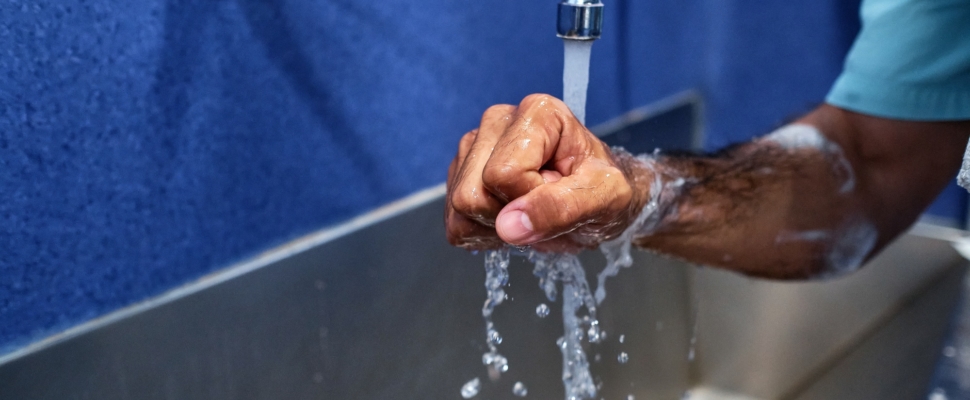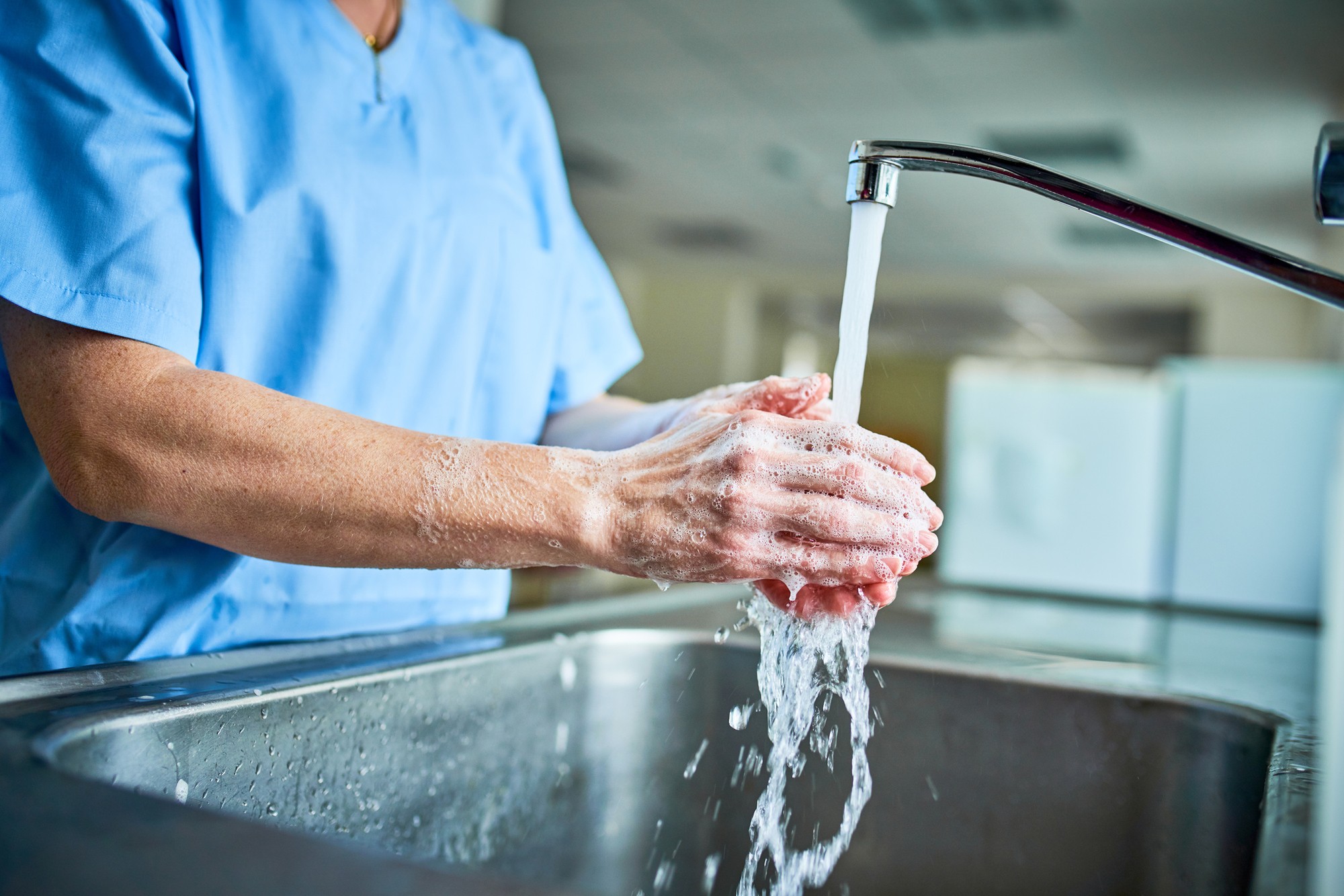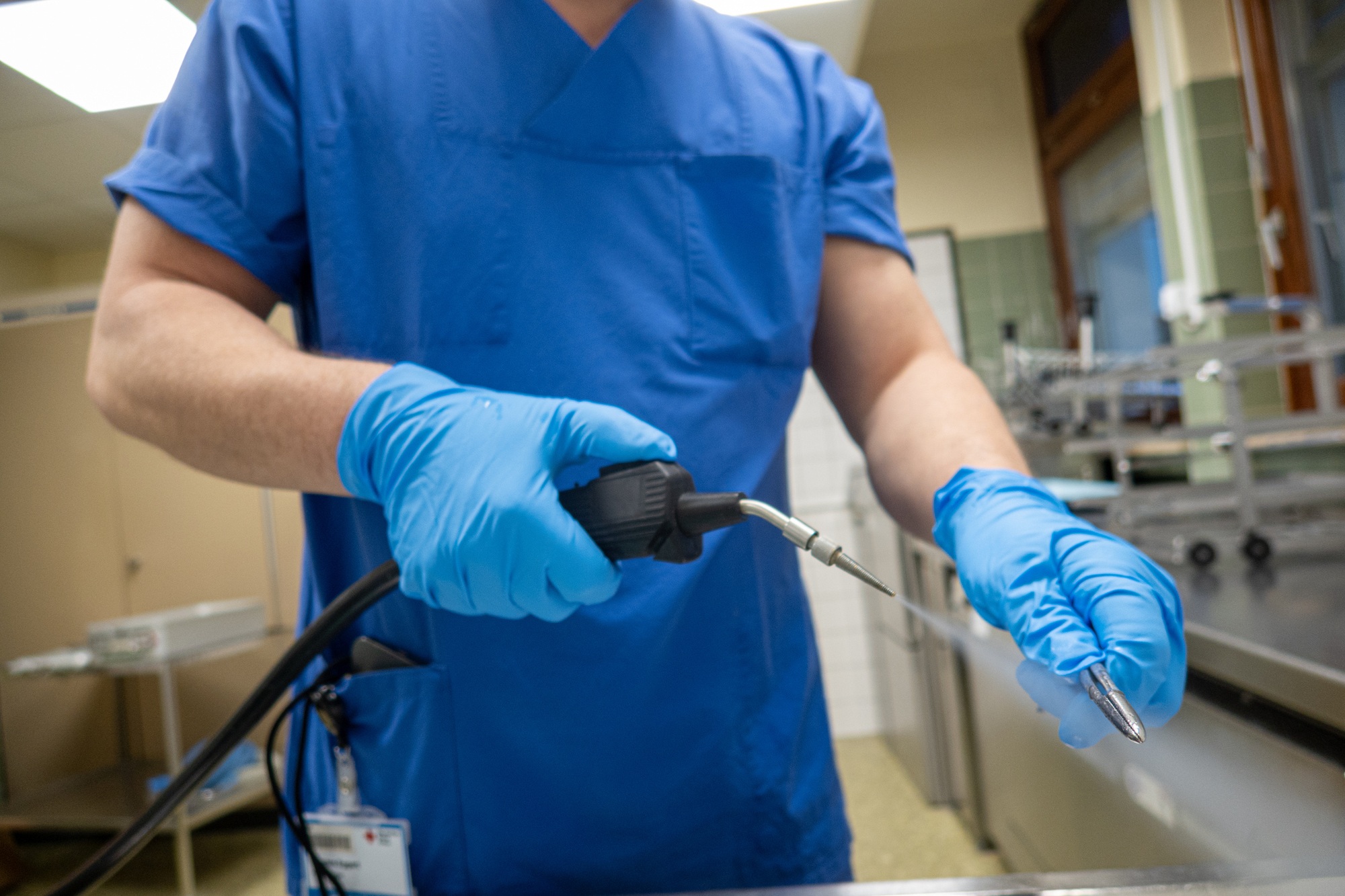
Infection Control Filtration
Infection Control Water Filtration
Mitigating Waterborne Illness and Microbiological Contamination
While ‘infection control’ is a term most often used in healthcare, the best practices for prevention and response to threats of infection, specifically waterborne illnesses, are relevant to us all. Public health is dependent upon the supply of clean water, and when potable water is compromised, so is our safety. Water contamination may cause illness, halted business, and even death.
“Infection prevention and control (IPC) is a practical, evidence-based approach preventing patients and health workers from being harmed by avoidable infections.”
–World Health Organization (WHO)
Water may become polluted for any number of reasons — one of the most critical waterborne threats is contamination from microbiological organisms such as bacteria or viruses. Microbiological contaminants may enter or develop within water supplies or plumbing system naturally (eg, biofilm development) or because of external happenings like weather and construction. Due to the aging and degradation of our water infrastructure, our water sources and distribution systems are especially vulnerable to corruption due to events like natural disasters, repairs, and sewage leaks.
Water Safety and Healthcare
Hospitals and healthcare facilities are particularly sensitive to water contamination, given the added risks to patient safety and continuity of care. Accordingly, medical buildings country-wide are subject to a variety of water management regulations and guidelines. These regulations require facilities to have robust programs that define the control measures and corrective actions to reduce the risks of Legionella and other opportunistic pathogens from growing or spreading.
Showers, sinks, and ice machines are considered to be critical control points within healthcare facilities due to their high potential for contamination. For instance, showers and sinks may aerosolize bacteria, leading to waterborne illnesses like pneumonia. Ice machines are prone to biofilm development as the result of water exposure and limited disinfection practices. Additionally, high internal temperatures within ice machines and other water-fed equipment create the perfect environment for biofilm-based pathogen growth, like Pseudomonas aeruginosa or Legionella.
Within healthcare, we offer water filters as both in-line control measures (preventative or programmatic use) and point-of-use corrective actions (emergency response) to help facilities maintain effective water management plans, and most importantly, keep their patients, staff, and visitors safe from hospital-acquired infections (HAIs) as the result of water contamination.
How We Help
At Nephros, we specialize in solutions that effectively purify EPA-quality water and protect against waterborne illness. Our infection control products are all 510(k)-cleared as FDA Class II filters, ensuring the highest standards of in-use performance testing, accountability, and water safety. Further, the hollow-fiber membrane technology within our filters retains microbiological contaminants through size exclusion and provides superior infection control, no matter the building type. Our robust product performance, coupled with expert guidance, equips facilities to meet regulatory requirements and create safer environments. Of particular importance, the status of our infection control products as FDA Class II filters ensures compliance with the specific recommendations of ASHRAE 514 when deployed appropriately within healthcare facilities.
In-Line Water Filters for Infection Control
Our in-line water filters provide a proactive, or preventative, approach to waterborne infection control, and provide a barrier to bacteria, viruses, and endotoxins for up to 90 or 180 days (3 or 6 months), depending on the model. By installing directly into plumbing lines, our in-line filters integrate discreetly into water distribution systems. An added benefit of this installation type is the suitability of deployment within ligature-free environments such as behavioral health units or prisons. For sterile processing applications, installation of our HydraGuard products post-RO or DI systems will establish powerful endotoxin retention and support compliance with the water-quality standards defined within ANSI/AAMI ST108.
Point-of-Use Water Filters for Infection Control
Our point-of-use water filters offer an immediate or corrective response to bacteria-based water events and outbreaks, lasting for up to 90 days (3 months). By installing quickly and easily to sink or shower fixtures, our point-of-use filters provide an instant barrier to bacterial contamination and are ideal to have on hand in the case of emergency situations involving the presence of waterborne bacteria, such as a boil-water advisory or brown-water event.
Protect you facility and water from microbiological contamination with the application of our medial-grade filtration. Contact us today to learn more about how we can help you with water-based infection control.
Want to learn more?
Contact us for product details and additional information
Want to know more?
Reach out for quotes, additional product details, installation questions, and more.

